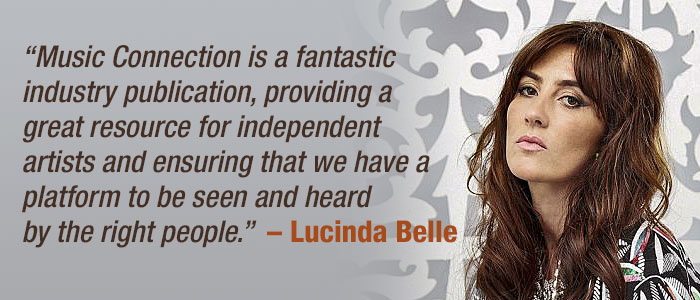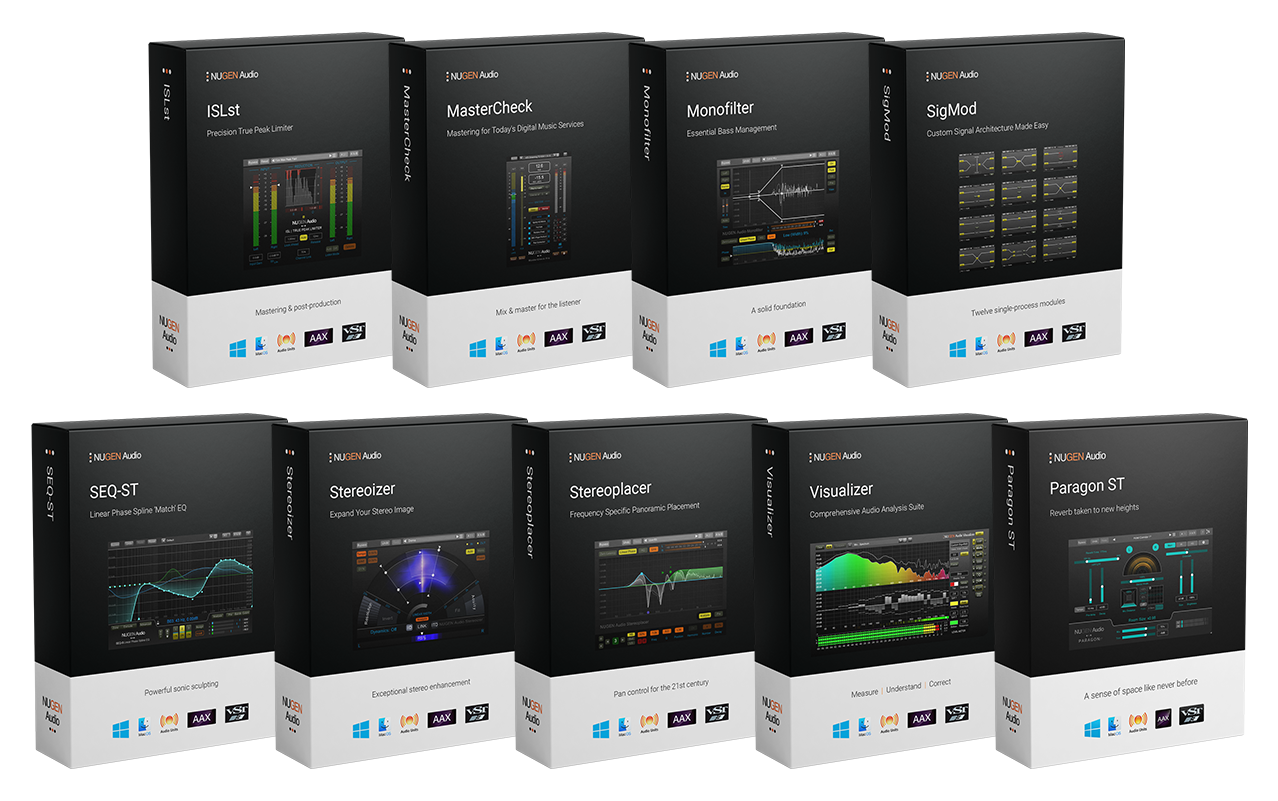Let me start by thanking the staff at Music Connection for reaching out to me for my thoughts about what the role of a ‘Producer’ is all about.
Well, a famous producer-engineer, Tom Dowd, who produced one of the greatest songs of all time, “Layla” by Eric Clapton, once said “The producer’s job is to capture all the energy of an artist’s performance and get it on the tape” (when there was tape).
Personally, I’ve produced many artists and recordings, and I’ve found producing to be every bit as fulfilling as recording. I once produced a record for Spanish recording artist, Alfonso Saenz, and the project included writing songs for him and even advising him on how to reach his target market: American females. He would write lyrics and then ask me, “Michael, will an American girl think these are sincere and sexy?”
We had a great time as collaborators while I engineered and produced the recordings, it was simply the best!
Besides capturing a performance, the producer’s job can also include selecting songs, finding a recording studio, an engineer, and session players, as well as helping to negotiate a distribution deal, if there is one. I consider this to be one of the most interesting jobs in the music business because of the true collaboration between the artist and the producer. A producer is the artist’s conduit to the public, motivating them, collaborating in some cases, and generally creating a safe haven for artists to express themselves and their musical art.
So, what does it take to become a successful music producer? First, you need to have ears! Without great ears, you won’t have a chance. What I mean is that you need to know what works musically and sonically and what doesn’t work; you also need conviction and a solid gut.
You must have the ability to leap tall buildings and gently motivate and inch your artist toward his or her best performance without ruffling any feathers along the way. You need to gain the trust of everyone in the control room without alienating anyone and instinctively know when to keep your mouth shut and just let the music happen. A great producer has the inherent ability to understand and feel what the public will find infectious and want to hear over and over again. This is the producer’s single greatest challenge, gift, and reward.
By definition a music producer or record producer, as they are sometimes referred to, is a recording project’s creative and technical leader. That person helps choose songs, coach artists, and shape songs and sometimes even the entire sound of the band. The following people—excerpted interviews from the second edition of my book The Best Jobs in the Music Industry, Rowman and Littlefield Publishers (2022)—fit that description thoroughly.
Russ Titelman
“Would you guys keep it down a little, please? I’m on the phone.”
Russ Titelman is having work done on his spacious Manhattan apartment, and I can hear the piano being tuned in the background. I consider it an honor to talk with Russ, the man responsible for producing much of the music I love. I can only imagine spending a few days in the studio with him; man, what I could have learned. It was apparent to me, from his calm, reassuring demeanor, why he has been so successful.
He is genuinely interested and engaged as we talk about the business he loves and imparts a little wisdom. He is, by the way, the only contributor who spent two hours with me on the phone, dissecting this interview sentence by sentence to make sure it conveyed exactly what he wanted to say. A true producer, a great producer.
Titelman is an independent record producer who has won three Grammy Awards for producing Steve Winwood’s “Higher Love” and Eric Clapton’s Journeyman and Unplugged albums. He has worked with numerous musicians, ranging from the Monkees and the Bee Gees to Paul Simon and Chaka Khan.
Russ, you’ve been a huge influence on shaping today’s music. Please tell me a little bit about the actual job of a record producer.
RT:When I get asked that question by laymen or a civilian, I usually say, “Do you know what a movie director does?” And if they answer positively, I say, “It’s exactly the same role as a movie director, only in the music business they call it a producer.” It’s a different moniker, and different terminology for the same activity. So, if you know what a movie director does, and some people don’t, which is actually shocking to me really, I then explain.
The producer oversees the entire recording process, and you work with the artist, help choose songs if they’re not writers themselves, or select the songs they write themselves if they are writers. Sometimes they’ve written more than 10 or 12 songs, so you help them choose which ones you feel should be on the record. Then if they don’t have a band, you help put one together and suggest orchestrations if you’re going to overdub things like horns and strings, or glockenspiel.
Then you will look at the way to approach each song: full band, or, “This sounds like it would be better just guitar and bass,” that kind of thing. I don’t get involved with lyrics too much when working with people like James Taylor or Paul Simon or Randy Newman—they know best!
Speaking of sound, when you are working with James Taylor or another established artist who has a sound, do you ever try to stretch them?
RT: Well, sometimes it’s good to stretch, but not too much. There might be some suggestions of direction, like on the new Jerry Douglas record where we threw around the idea of going to New Orleans and have Jerry record with New Orleans musicians because it fit him well as a soulful player. We did just that, and it worked out quite well.
There’s obviously a huge amount of trust that the artist has to have in you to allow that type of suggestion, right?
RT: Exactly. Trust is the main thing you have to have with an artist. You must set up an atmosphere where there’s trust, and they can be comfortable with you when they are in their creative space.
What does it feel like when you’re working with a well-known artist, like Paul Simon?
RT: Well, each artist is different and requires a different skill set and a different approach by a producer. Because of that diversity, you have to adjust working styles, so you have to give-and-take a bit here and there.
Basically, if you are hired to work with someone, it inherently means that the artist wants to work with you and chose you for a reason. For the most part, if there is agreement about what you’re doing, then there’s trust and an atmosphere of “try anything.” Any idea is respected, and sometimes even if it doesn’t work, it may lead to another idea.
Arif Mardin had a great quote that Barry Gibb [the Bee Gees] told me when I was working with him, and they were at an impasse. Barry said, “Well now, what are we going to do?” And Arif replied, “Don’t worry—something will happen.”
How do you, as a producer, make a living?
RT: Well, typically you get an advance when you start the project, and then you get paid at the end when you finish.
Do you have any advice for somebody who wants to get started.
RT: Go out and listen to lots of bands. Find a brilliant act and start working with them, grow with them, promote them, and find success with them. •
Veit Renn
Veit Renn is a music producer, singer, and songwriter who has been very successful working both remotely and locally outside of the L.A., Nashville, and New York City music scene while living in Orlando, FL. Renn fits in a second career as the advanced audio course director for Full Sail University.
So, Veit, would you tell me a little bit about your job as a music producer?
VR: I like to tell artists that I only have one goal, which is to make their music commercially viable. That, of course, involves a lot of different technology, people, and musical knowledge, as well as having the right musicians available. When I first meet with an artist, I have to understand their vision, and at that point my goal is how can I make this cool and interesting, and still marketable.
Many artists are a little schizophrenic when it comes to their taste in music. I’ve worked with some who have just heard the newest Jill Scott record and want everything to sound like their record, but a month later they hear a different record and want to change everything to sound like that one. So, it takes some psychology and guidance and a little nudge now and then.
As a producer, do you share in the royalties?
VR: Everything is negotiable, but there are some standards. Until 2010, it was pretty standard to get 3 percent of wholesale as a producer per song on the album.
Oftentimes you get an advance that’s recoupable from that percentage. So, let’s say you get a $10,000 advance to produce a song and spend $5,000 on musicians and the recording studio. You will have $5,000 left for yourself. But, that $10,000 is still fully recoupable by the record company, which means the artist has to pay back the $10,000 from sales before the royalty checks start coming.
Today, most deals are buyouts, where I get a larger amount of money up front and no back-end. No back-end means no royalties. I would actually recommend this arrangement unless you know something is going to be a huge success.
On the other hand, if you’re going to work with Beyoncé, and know she’s gonna sell 10 million records, then you should try to get points and forget about any advance at all. That’s what I call free money. It’s that check that just shows up in my mailbox every six months from the record label.
Would you say that being a producer in today’s music industry can be a sustainable career?
VR: I absolutely think so. The competition is stiff, and people now have laptops with a $50,000 recording studio inside, but that does not mean that they know how to use it! It all starts with small projects and diversity. If you’re a one-trick pony, and all you do is rap music, you’re going to struggle, unless you are the very, very best at rap music, which is like being Michael Jordan in the NBA. I’ve produced pop, R&B gospel, country, heavy metal, trash metal, and lots of hip-hop. You must have an understanding of each genre so you can break it down and be authentic. •
Mark Bright
Grammy-winning Mark Bright formerly served as Vice President of EMI Music Publishing. His current clients include Luke Bryan, Carrie Underwood, Shakira, Rascal Flatts, and Reba McEntire, among many others.
What makes a great music producer?
MB: A record producer needs to be a conduit for the artist. The most successful producer I have seen fill that role, starting from early in my life, and one of my idols, was George Martin.
As a kid, my sister would bring Beatles records home. When she went out with friends, I would sneak into her room and listen to “Hey Jude” and “Revolution” over and over. I would see George Martin’s name and think, I want to be that guy. What does he do? I found some articles, and when reading about him, I figured out that he was tuned into everything that the Beatles were about. He understood their music and what they wanted to convey artistically. He really got into their heads, and those records weren’t about George Martin; they were about the Beatles.
You’ve produced some incredible music with, among others, Carrie Underwood and Rascal Flatts. What’s your day like?
MB: You mentioned those two acts, and while both of those artists are superstars, every day is different. If you’re fortunate enough to work at a high level, you will be tracking or doing a track build on a daily basis while working on a project. If we’re not tracking, we’ll be writing songs or listening to songs people wrote that we might want to use. It’s all about the song.
How involved do you get in the creative process? Are you involved in arrangements, lyric tweaking . . . that kind of stuff?
MB:That’s basically what I do, arrangements. When a songwriter writes the song, I will listen very carefully to it, and sometimes I’ll hear an arrangement as a stream of consciousness. I grew up listening to a lot more music than watching television, so my life has always been about listening to music. The arrangement is what I do, where instruments should play and where they shouldn’t.
What challenges are there to working with superstar musicians?
MB:There’s not a whole lot of down side working with superstar artists. They don’t become superstars if they don’t have a good sense of their artistry and musicality. The one big challenge is availability. Superstars have to fit recording into an already tight schedule; not only are they working on an album, but soundtrack recordings and commercial recordings that are pulling the artist off the central task of making music. I always get enough time with them, but I always want more. With new artists, you get all the time in the world. With superstars, you will always want more time than you get. That’s just how the business works.
Has living in a musical community like Nashville helped you grow personally? Professionally? Musically?
MB:Nashville is a great place for music. For me, it’s the elixir that pulses through my veins, the whole thing. You can find any style of music here. Clearly, we do country music, but we also do alternative music, Christian music, and mainstream pop music. . . all day long. It goes on and on and on.
Would you tell me about the financial side of being a producer?
MB: If you had asked me that question five years ago, I’d say album advances and royalty fees. Now, except for superstar artists, producers are also being asked to help put the roadshow together, because maybe the bandleader needs help. Some producers know how to put sets together at a high level, one-off shows, shows that require orchestras. For this type of extended service, you are paid like a production company. These opportunities are not available to everyone and will typically only exist, or be extended to you, if you are at a certain level as a producer.
If you were to pick one song, or one artist, that defines your experience as a producer, what would it be?
MB: That’s impossible! I have several artists where we lived a special moment in time, a musical moment. Everyone in the room heard it, felt it, it was a spiritual thing—and then you hear it back on the radio, and it’s a big hit. You hear it years later, and the magic is still there. You will never forget it. I’ve had four or five of those, dating way back to Black Hawk, several with Rascal Flatts, Carrie Underwood, a couple with Sara Evans, and a couple with Reba McEntire. I’ve been really, really lucky to be in the room with some exceptional artists throughout my career.
Do you think a career as a record producer is still attainable in today’s market and music industry?
MB: I think it’s the new frontier for the music industry, and I love it. We’re just weeding out all the wimps. The people who remain in the industry are the ones who really love it. •
The Producer's World
Skill Set: Communication skills are at the top of this list; music producers are simply great with people. Great producers also have the innate ability to understand what the public will like.
Hours: A producer’s hours are varied and follow the production process. Producers work when the artist is ready. Most of the greatest recording sessions in history took place between 9 p.m. and 3 a.m. (the music hours), so you can work on your own schedule, but during the actual recording you may be drinking lots of Starbucks. (Stay away from the Mountain Dew; it will make you crazy!)
Upside: A record producer has some great highs. You are responsible (if not credited) for the final recording and what the public will ultimately hear. You are the one who picks the best takes, sometimes the music, and works with the artist until the arrangement is perfect. You are a direct contributor, just like the artist, and in some cases you’re an equal partner.
Downside: Real opportunities to become a producer on the international stage are getting harder to come by. You might spend considerable time finding and producing the right acts to get you where you want to go. The pay will not be good at the outset of this career path.
Financial: $$ to $$$$: Some producers still command six figures to produce an artist, plus points (a percentage of the sales). You may never be one of them. Like any other area where residual income is available, the more music you produce, the more money you will probably make long-term.
Location: You typically need to be in a big music city—New York, Los Angeles, and maybe Nashville or Austin. You need to live where the artists live, where the recording studios are located, and where the music business is conducted.
Future: I am told that producing music is still a very viable career. Given technology and the huge amount of media being produced, I can see why. •















